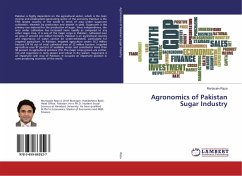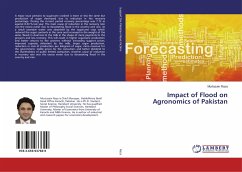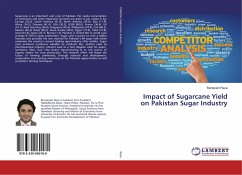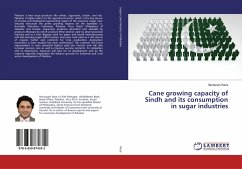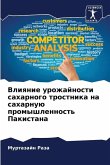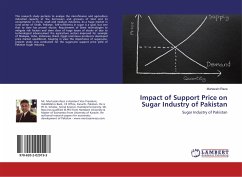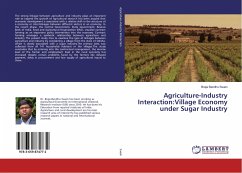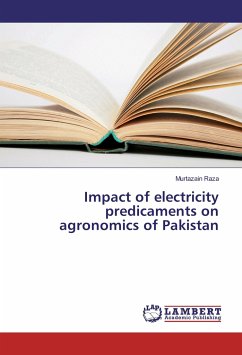Pakistan is highly dependent on the agricultural sector, which is the main income and employment-generating sector of the economy. Pakistan is the fifth largest country in the world in terms of area under sugarcane cultivation, eleventh by production and sixtieth in yield. Sugarcane is the primary raw material for the production of sugar. Since independence, the area under cultivation has increased more rapidly as compared to any other major crop. It is one of the major crops in Pakistan, cultivated over an area of around one million hectares. Pakistan is an agricultural country and importance of water cannot be under-estimated, particularly for irrigated agriculture. In Pakistan, irrigated agriculture covers 16.2 million hectare (74 %) out of total cultivated area of 22 million hectare. Irrigated agriculture uses 97 percent of available water and contributes more than 90 percent to agricultural produce (15). The major crops grown are cotton, rice and sugarcane in rainy season and wheat in dry season. Sugarcane is an important cash crop of Pakistan. It occupies an important position in cane producing countries of the world.

